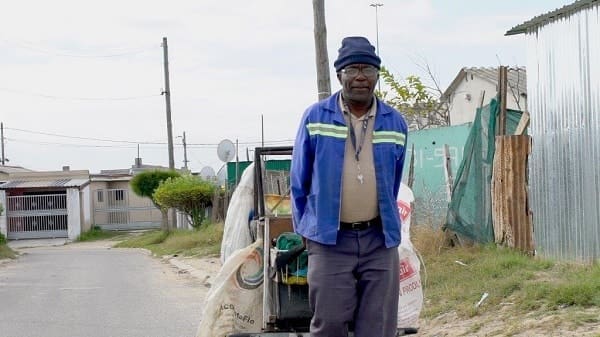Telkom announced on Monday that it is supporting the green economy in the township of Khayelitsha in Cape Town. South Africa views a green economy as a sustainable development path based on addressing the interdependence between economic growth, social protection, and natural ecosystem.
Telkom has made a commitment to keep four Buy Back Centres in Khayelitsha connected to the internet in order to remain operational after the launch of a recycling project called GreenUp.
A buy back centre is a depot where individual waste collectors, reclaimers and street waste pickers can sell their recyclable waste.
GreenUp is a tripartite initiative between the Western Cape Department of Environmental Affairs and Development Planning (DEA&DP), the City of Cape Town (CoC) and Distell to solve the issue of post-consumer waste management in the community of Khayelitsha by encouraging recycling and providing assistance to the centres that handle the processing of this waste.
“It makes sense for us as Telkom to supply the Buy Back Centres with the connectivity that they need to ensure that they operate their businesses seamlessly with little disruption in their processes,” said Gugu Mthembu, chief marketing officer at Telkom.
“Such places are some of the key sources of the solutions we need, not only to job creation as it relates to the big issue of unemployment in our country, but also to ensuring a cleaner and safer environment for us all.
“These businesses contribute significantly to the green economy and answer some of the more immediate actions we need to take as a society to lessen the climate emergency through recycling and taking care of our environment.”
GreenUp, a forward-looking, community change initiative with a focus on a cleaner environment, aims to establish formal, effective operational value chains with regards to the collection, separation and processing of recyclable waste in Khayelitsha.
In short, GreenUp is a post-consumer waste recycling programme.
Khayelitsha is the largest informal settlement in the Western Cape and the sixth biggest informal settlement in South Africa. Khayelitsha is growing at an average rate of 2% per year, with an average population of some 450 000 residents.
Distell sees GreenUp as an exciting project through which to further align its operational activities with its sustainability objectives.
A key function of the buy back centres is to track waste management activities:
To be effective, this needs to happen in real-time in order to bring transparency to the sponsors; to ensure fair pricing to waste pickers (or environmental agents);
To improve their supply to waste buyers, without being overwhelmed by administrative activities.
To the aid of the buy back centres, the DEA&DP, the CoC and Distell contracted Kudoti – a startup tech company that provides digital solutions for smarter waste and recycling in Africa – to develop an app that enhances work output and efficiencies.
“The coming onboard by Telkom is a natural marriage with our app for us. The buy back centre registers the environmental agents’ profiles and logs trainings, equipments provided, the amount of waste collected by them and the price paid into Kudoti,” said Prasenjit Sinha – Kudoti co-founder and chief product officer.
“The system also provides proof of work to the buy back centres and environmental agents alike. Finally, it provides management data to the project managers and sponsors. Telkom ensures that the buy back centres are online to be able to do this. It’s a perfect partnership.”
The GreenUP campaign aims to restore the dignity of the individuals and to change the stigma around them so that they can do their work efficiently and meet their waste targets.
